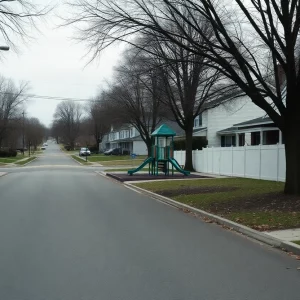Unusual Religious Option for Students in Bristol, Tennessee
Bristol, Tennessee, a charming city nestled in the heart of the Appalachian region, is currently in the news due to a newly approved law that has sparked varied reactions within the community. The law permits students to miss one hour of school to participate in religious practices, and it seems this has opened the door for some unexpected opportunities.
What’s Happening?
Under this new law, the Satanic Temple has introduced a program at the local middle school called the Hellion Academy of Independent Learning, or HAIL for short. The intent behind this initiative is to provide children with alternatives to traditional religious teachings, focusing instead on critical thinking and secular morality.
Everett, the national campaign director for the after-school Satan club, explained how the program works. “The students engaged in our activities are not being taught to worship the devil or anything sinister,” she said. “In fact, they participate in a variety of learning experiences that encourage them to think for themselves, explore literature, and engage in creative projects.”
Clearer Understanding on Misconceptions
One of the major goals of the HAIL program is to combat the misconceptions surrounding the Satanic Temple. Many people immediately think of dark rituals or negativity when they hear the word “Satanic,” but Everett clarified, “Our focus is purely educational and is geared towards promoting a strong moral compass through non-religious lenses.”
Community Response
The Bristol Tennessee City Schools released a statement regarding the law, clarifying that they are required to offer a designated period during school hours for students to attend religious moral instruction courses. However, these classes do not take place on school property, and it’s important to note that participation is entirely up to the parents’ discretion.
Local resident Donna King, who has lived in Bristol for over 30 years and raised children who went through the Bristol school system, shared her thoughts about the new program. “I think parent involvement is key when it comes to decisions affecting our children,” she stated. While King admits that she finds the HAIL program somewhat unusual for the area, she acknowledges that parents should have options when it comes to their children’s education. “This is very different from what I’ve seen, but diversity in education is important,” she added.
What’s Next?
The leaders of the Satanic Temple have indicated that providing religious choices for families is a core aspect of their mission. At the same time, Bristol Tennessee City Schools reassured the public that they are an independent entity and maintain a neutral stance—neither endorsing nor opposing any religion.
The discussion surrounding the HAIL program is likely to continue as it introduces a unique concept to a conservative area. By allowing students to explore different moral frameworks and belief systems, it challenges the traditional ideas of education and opens up dialogues about faith, freedom, and individuality.
Conclusion
As Bristol, Tennessee embraces this new law and its implications, the community finds itself at an intriguing crossroads. Parents, teachers, and local residents will have to navigate these uncharted waters of religious education together. The hope remains that this opportunity fosters understanding and respect among differing beliefs in this vibrant, evolving city.






